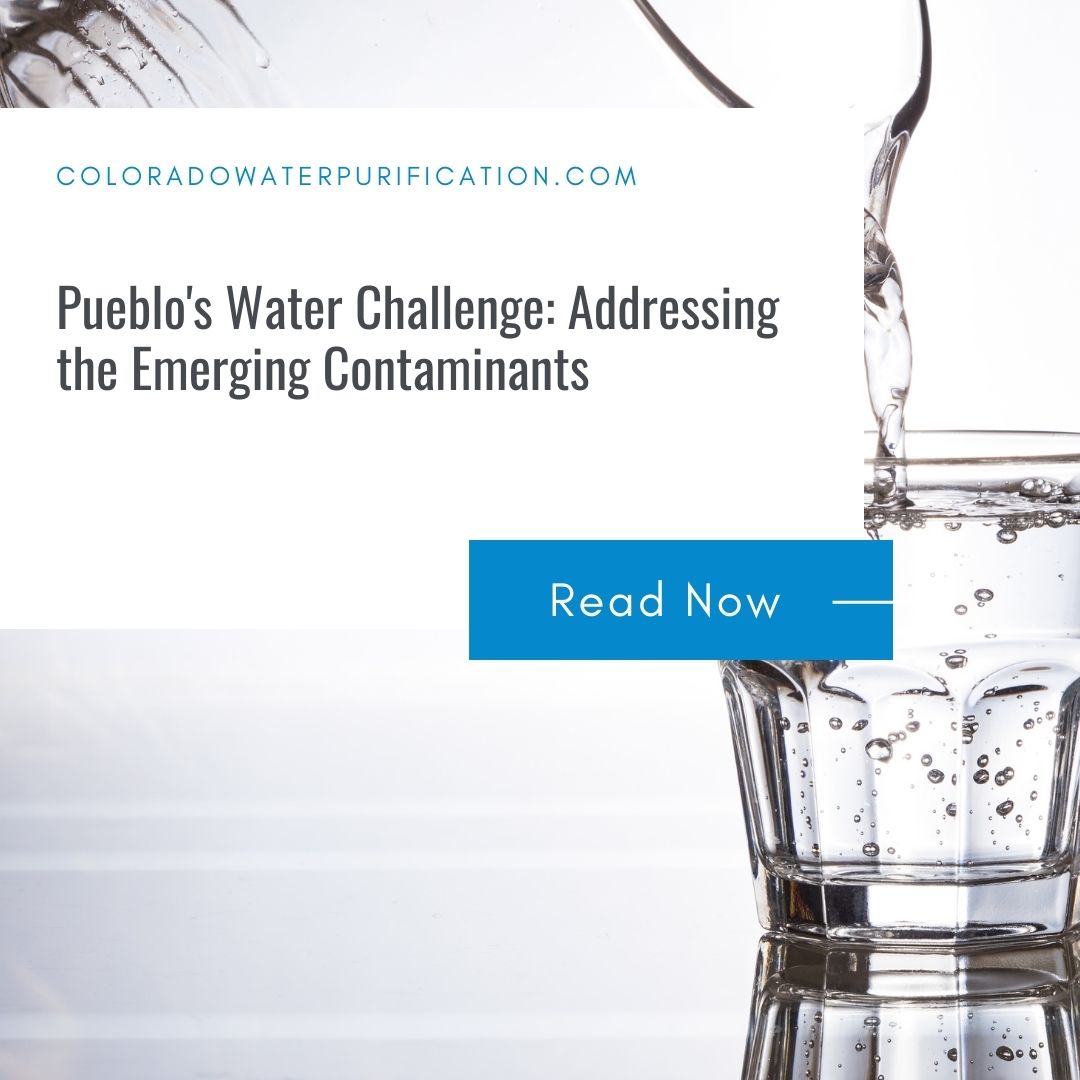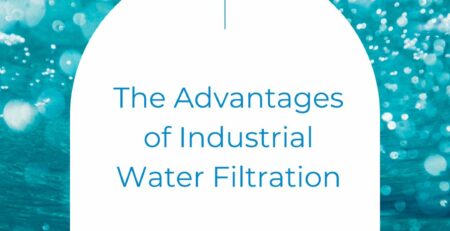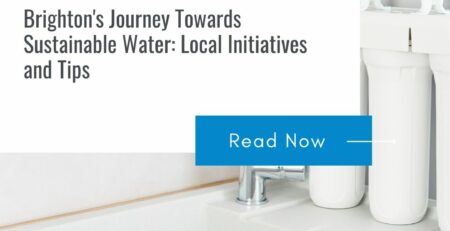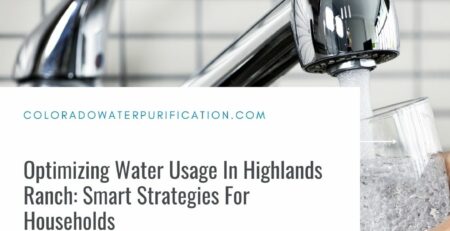Pueblo’s Water Challenge: Addressing the Emerging Contaminants
As homeowners, we often take for granted the clean water that flows from our taps. However, in recent years, a major challenge has emerged in Pueblo and other communities across the country – emerging contaminants in our water supply. These are substances that were virtually unheard of just a few decades ago but are now being found at concerning levels in our drinking water. From pharmaceuticals and personal care products to industrial chemicals, these contaminants pose potential health risks and must be addressed. In this blog post, we will explore the scope of Pueblo’s water challenge with emerging contaminants and dive into some possible solutions to ensure safe drinking water for ourselves and future generations.
Introduction to the issue of emerging contaminants in Pueblo’s water supply
Residents of Pueblo, Colorado have recently been introduced to an unsettling issue in their community – emerging contaminants in their water supply. These contaminants, which include pharmaceuticals, pesticides, and chemicals from consumer products, pose potential risks to the health and wellbeing of those exposed. While the full extent of the problem is still being examined, it is clear that action must be taken to ensure that the water supply remains safe and free from harmful substances. As the community confronts this challenge, it is important to remain vigilant and proactive in protecting the health and safety of all residents.
a. Definition of emerging contaminants
Emerging contaminants are chemicals or substances that are recently being identified as potential environmental pollutants. These contaminants can be found in various forms and can enter the environment through different routes such as industrial activities, agricultural practices, or domestic use. The concern surrounding emerging contaminants lies in their potential to cause harm to both human health and the environment. Unlike traditional pollutants, emerging contaminants are not yet regulated and therefore, there is a lot of uncertainty surrounding their impact. As new research continues to emerge, it is important that we stay informed and take necessary measures to address and mitigate the risks associated with these contaminants.
b. Explanation of why this is a growing concern in Pueblo
In recent years, Pueblo has experienced a growing concern that has been on the minds of many residents. The issue has raised questions and sparked debates among community leaders, educators, and even parents. The concern is related to the increasing number of individuals who are struggling with mental health issues. With each passing year, more and more individuals in Pueblo are diagnosed with various mental health conditions, ranging from anxiety and depression to more severe disorders. The growing concern is not only affecting individuals personally but has also impacted schools, workplaces, and even the local economy. As a result, the community is working together to come up with solutions to address this pressing matter and provide support to those in need.
The impact of emerging contaminants on public health
In recent years, there has been growing concern over the impact of emerging contaminants on public health. These contaminants, which include both natural and man-made chemicals, can be found in various forms of waste and pollution, and can pose serious risks to human health and the environment. Some common examples of emerging contaminants include pharmaceuticals, pesticides, and plastics. These chemicals have been linked to a range of health problems, including cancer, developmental disorders, and reproductive issues. As more research is conducted on the subject, it is becoming increasingly important to address the presence of emerging contaminants and their potential impact on public health.
a. Overview of potential health risks from exposure to these contaminants
Exposure to contaminants can have potential health risks that individuals should be aware of. These contaminants can take many forms, such as chemicals, radiation, or pollutants, and can be found in various environments, such as the air we breathe, the water we drink, and the food we eat. Exposure to these contaminants can lead to a variety of health concerns, including respiratory problems, skin irritation, neurological damage, and even cancer. It is important to take steps to minimize exposure to these contaminants and protect our health. This can include being mindful of the products we use and the environments we spend our time in, as well as seeking professional guidance on how to limit exposure to harmful substances. By taking these precautions, we can work to ensure that we are living in a safe and healthy environment.
b. Examples of communities impacted by similar issues
Communities all over the world are facing similar issues that impact their everyday lives. Among those, one example is the issue of access to clean water. Many communities, especially in developing countries, are struggling to obtain safe drinking water due to contaminated sources and infrastructure lacking repairs. This has led to a number of health problems such as diarrheal diseases, which can be fatal if not treated. These communities require support from organizations and individuals who are willing to help improve the situation. Across the globe, the struggle to provide safe drinking water is just one of the many similar issues communities face. It is important to recognize that by working together, we can provide a better future for all.
Identifying the sources of emerging contaminants in Pueblo’s water supply
Water is essential for our survival and daily activities. But what happens when it’s contaminated? That’s what residents in Pueblo, Colorado are dealing with as they work to identify the sources of emerging contaminants in their water supply. These contaminants, which can come from a multitude of sources including agricultural runoff, industrial waste, and even household products, can have harmful effects on both human health and the environment. Identifying and mitigating the sources of these contaminants is crucial for the well-being of the community. It’s a complex challenge, but one that residents and officials are committed to addressing.
a. Agricultural runoff and agricultural practices
Agriculture is an essential piece of our economy, providing us with an abundant supply of food. However, with agricultural practices come concerns for environmental health. Agricultural runoff, the excess fertilizer, pesticides, and other chemicals that come from farming, is a significant threat to our ecosystems. It often contaminates nearby water resources and harms aquatic life. The good news is that there are many ways to combat this issue. By implementing improved agricultural practices, like using cover crops or reducing pesticide application, we can better manage agricultural runoff and protect our environment. Let’s work together to make sure our agricultural practices are sustainable and keep our ecosystems healthy for generations to come.
b. Industrial discharges and waste disposal practices
The negative impact of industrial discharges and waste disposal practices on the environment cannot be denied. These practices result in the release of various hazardous pollutants into the air, water, and soil, leading to serious health hazards. The discharge of untreated industrial waste into rivers has led to contamination of drinking water, which is a major concern in many countries. It is important that industries take responsibility for their waste generation and disposal practices. The implementation of proper waste treatment and disposal methods can go a long way in reducing the negative impact of industrial activities on the environment. We must act now to protect our environment and prevent further damage.
Current efforts to address the issue
In recent years, there has been a surge of initiatives aimed at addressing various issues that plague our society. One such issue that has received significant attention is the issue of climate change. Governments around the world have taken steps to reduce emissions and promote clean energy, while businesses have begun to adopt more eco-friendly practices as well. Many individuals have also taken it upon themselves to make lifestyle changes to reduce their carbon footprint. It’s encouraging to see the collective effort towards tackling this global problem, and it’s important that we continue to work towards solutions that will safeguard our planet for generations to come.
a. Government initiatives and policies
Government initiatives and policies play a crucial role in shaping the future of nations. They not only provide direction but also set the tone for progress. From economic policies that affect investments and job creation to social policies that impact healthcare and education, government initiatives can have far-reaching effects on the lives of citizens. Moreover, these policies are constantly evolving to meet the changing needs of society. As citizens, it is important to be aware of government initiatives and policies and to engage in discussions around them to ensure that they effectively serve the people.
b. Collaborative efforts between community organizations and local government
Collaborative efforts between community organizations and local government have the potential to make a tremendous impact on the lives of people in their communities. When both parties join forces, they can address issues that are of greatest concern to the locals, such as access to quality healthcare services, education, and affordable housing. With community organizations providing valuable insights into these issues and government officials providing expertise and resources, there is a greater likelihood of achieving meaningful and long-lasting solutions. This collaboration also helps to build trust and understanding between the two groups, leading to a more empowered and engaged community. Ultimately, when community organizations and local government work together, they create a potent force that can make a significant difference in the lives of those they serve.
Steps individuals can take to protect themselves from emerging contaminants
As emerging contaminants like microplastics and pharmaceuticals continue to be found in our water, it’s important for individuals to take steps in protecting themselves. One simple way to do this is by investing in a home water filtration system, which can help remove contaminants from tap water. Another option is to switch to using natural, non-toxic cleaning products that won’t add additional pollutants to our waterways. Lastly, being mindful of the medications we take and how they’re disposed of can also have a significant impact on limiting the amount of pharmaceuticals that end up in our water. By taking these steps, we can work towards reducing our exposure to emerging contaminants and protecting our environment.
a. Home water filtration systems
Access to clean and safe drinking water is something to be valued. While many people trust their local water sources, it’s not always a guarantee that the water that’s coming straight out of the tap is completely free of contaminants. For those who want peace of mind when it comes to their water supply, investing in a home water filtration system can be a game-changer. With a filtration system in place, you can rest easy knowing that any potential pollutants or impurities have been removed from your home’s water supply. Plus, having access to great-tasting water without constantly having to buy and replace plastic water bottles is not only better for your health but also better for the environment.
b. Being mindful of personal chemical use and disposal methods
With the rise of environmental awareness, it’s becoming increasingly important to not only watch what we consume, but also what we use and discard. Personal chemical use and disposal methods are no exception. It’s easy to forget that what we use on a daily basis, from household cleaners to personal hygiene products, can have a significant impact on our surroundings. It’s our responsibility to ensure that we’re using chemicals that are safe for both us and the environment, and to dispose of them properly. By being mindful of our personal chemical use and disposal methods, we can do our part to protect our planet.
Long-term solutions for addressing emerging contaminant contamination
As the world continues to advance technologically, so to do the environmental risks that we face. Emerging contaminants have been identified as a growing concern, with many of these contaminants posing potential risks to human health and the environment. While immediate responses are often necessary to contain and manage contamination, it is crucial that long-term solutions are also explored to address this issue as a whole. By investing in research and development of new and innovative technologies, as well as promoting sustainable practices and responsible waste management, we can develop effective solutions that help to prevent future contamination incidents. With our collective efforts focused on creating a safer and more sustainable future, the impact of emerging contaminants on our lives and the environment can be mitigated.
a. Investment in infrastructure upgrades for wastewater treatment plants
Healthy and sustainable living is a shared responsibility. Investment in infrastructure upgrades for wastewater treatment plants is a significant step towards preserving the environment and ensuring the well-being of individuals and communities. Upgrading wastewater treatment plants improves the quality of treated water, reduces the adverse impact on nature, wildlife and humans, and helps in curbing water-borne illnesses. The improved wastewater treatment plants are environmentally friendly and energy-efficient. They can also cope with increasing population growth and the evolution of industrial and residential sectors. Hence, investment in infrastructure upgrades for wastewater treatment plants is a vital investment in a healthier and cleaner future for generations to come.
b. Implementing stricter regulations on industries responsible for contaminant discharge
We can no longer turn a blind eye to the negative impact that industries have on our environment. It’s time to take action and implement stricter regulations on those responsible for contaminant discharge. The consequences of pollution are severe and far-reaching, from harming wildlife to affecting our own health. By placing tighter restrictions on the amount of pollutants that these industries can release, we not only protect our natural resources, but also promote long-term sustainability. It may require some effort and sacrifice from these big corporations, but it’s necessary for the well-being of our planet and future generations. Let’s take a stand and demand a cleaner, healthier environment for all.
Conclusion – the importance of collective action in addressing this issue
In today’s interconnected world, individual actions may not be sufficient to tackle complex societal issues. This is where collective action comes into play. Whether it’s addressing climate change, inequality, or any other pressing concern, collective action from multiple individuals and organizations can make a significant impact. The importance of collective action cannot be overstated, as it enables people to pool their resources, knowledge, and expertise to achieve a common goal. Moreover, collective action fosters a sense of community engagement and can even inspire people to take even more action. Therefore, whether it is calling for policy changes or organizing and participating in protests, everyone has a role to play in supporting collective action to address the crucial issues of our time.
In conclusion, the issue of emerging contaminants in Pueblo’s water supply is a complex and pressing problem that demands immediate attention. As we have seen, these contaminants pose serious threats to public health and have the potential to greatly impact our community for years to come. From our discussion, it is clear that the sources of these contaminants are varied and require a multifaceted approach towards resolution. While efforts are being made by both government and community organizations, it is ultimately up to us as individuals to take action and protect ourselves from exposure. However, this issue cannot solely be tackled at an individual level. It requires collaborative efforts between all stakeholders – citizens, industries, and governments – to implement long-term solutions for ensuring clean and safe drinking water for everyone. It is our collective responsibility to hold industries accountable for their discharge practices and push for stricter regulations that prioritize public health over profit. Moreover, investing in infrastructure upgrades and utilizing advanced technologies can go a long way in preventing future contamination of our water supply. The time has come for us all to unite and take action against emerging contaminants, as only through collective effort can we ensure a healthier and brighter future for Pueblo and its residents.










